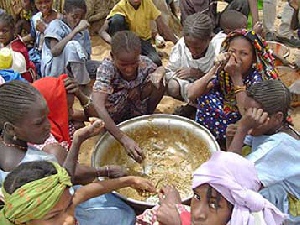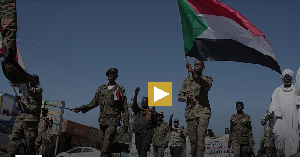Governments and non-state actors should prioritise the building of holistic and reliable data on vulnerable groups to be able to effectively mainstream their needs into political, economic and social empowerment programmes.
They should also promote the constructive engagements of the intended beneficiaries to make consensual decisions for the successful implementation of these programmes.
Delegates to the 55th Session of the UN Commission made the recommendations on Friday as part of their resolutions at the end of the 10-day Session, on the theme: “Strategies for Eradicating Poverty to Achieve Sustainable Development for All.”
Madam Otiko Afisah Djaba, the Minister of Gender, Children and Social Protection, who represented President Nana Addo Dankwa Akufo-Addo, delivering the national statement earlier, expressed the Government’s commitment to get Ghana’s data right through the expansion of the National Household Registry and National Identification System.
The delegates adopted three sets of resolutions covering the mainstreaming of disability in the implementation of 2030 Agenda for Sustainable Development; World Programme of Action for the Youth; and the New Partnership for Africa’s Development.
“Social integration and economic policies should seek to reduce inequalities, promote access to basic social services, education for all and healthcare services, eliminate discrimination and increase the participation and integration of social groups, especially persons with disabilities,” the resolution stated.
It said the potential challenges posed to social development by globalisation and market-driven reforms must also be addressed for every country to enjoy the benefit of globalisation.
The resolution encouraged member-states to promote the full and effective participation of young people, youth-led and youth-focused organisations in relevant decision-making processes.
The youth, with their organisations, should also be empowered through education, financial and technical programmes to enhance their productivity, it said.
Mr Philipp Charwarth, Chair of the Commission, in his closing address, said social protection efforts should focus on empowering the beneficiaries with sustainable livelihoods with the occasional offerings of handouts as remedial intervention.
He said the aim of the interventions must also be to project the dignity of the beneficiaries to end their marginalisation.
The Social Development Session was held at the world body’s headquarters in New York.
The event provided various platforms for members of the Commission and other key stakeholders, including civil society organisations, to build on the achievements gained in implementing the Copenhagen Programme of Action adopted at the World Summit for Social Development in 1995.
Regional News of Sunday, 12 February 2017
Source: GNA













